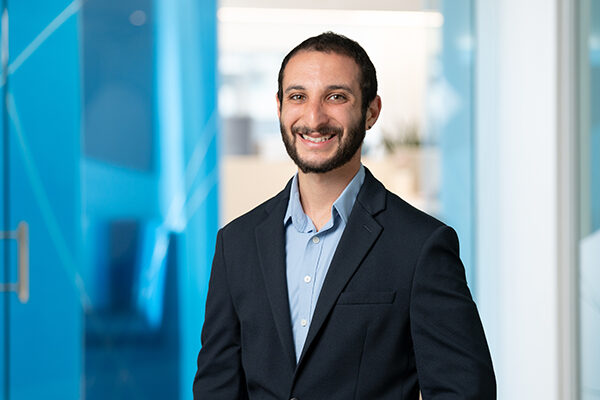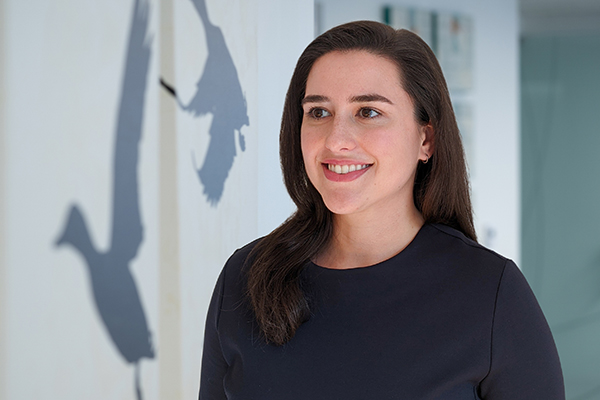RSV Prevention, Part I: Pediatric Monoclonal Antibodies
Summary
Tune into the first episode in our video series focused on Respiratory Syncytial Virus (RSV) prevention. In this segment, Avalere experts discuss how innovative offerings in the pediatric RSV immunization market will fit within the continuum of care and how the RSV preventive market will grow in the upcoming years.Panelists
This interview was originally published as a podcast. The audio is no longer available, but you can read the transcript below. For updates on our newly released content, visit our Insight Subscription page.
If you would like to watch the video version, please visit our video page. To learn more about this topic, check out our insight Navigating the Road to RSV Prevention.
Transcription:
Elif: Hi, and welcome to another episode of Avalere Health Essential Voice. Our podcast show covers a wide range of healthcare topics. My name is Elif Alyanak and I sit within the policy practice here at Avalere, and I’m joined today by my colleagues Sarah Moselle and Mitchell Finkel.
Today’s episode is part one in a miniseries focused on Respiratory Syncytial Virus, or RSV. Discovered in the 1960s, RSV is a lower respiratory tract infection with a consistently increasing prevalence globally.
Within the United States, on average, the CDC estimates that RSV leads to approximately 2.1 million pediatric outpatient visits annually, and an estimated 58, 000 children younger than five years old are hospitalized due to RSV infection annually.
Nearly all children experience at RSV infection by the age of two years old, and in many that infection may be mild, but can be especially dangerous and severe in high risk children.
While there is a monoclonal antibody used for prevention in high risk infants, there is no vaccine or long term immunization option to prevent infection in all infants. Fortunately though, through continued research, there are several products in development that may enter the market over the next couple of years.
Therefore, it’s important to begin considering how these innovative offerings will fit within the RSV continuum of care and how their use will be recommended by policy bodies like the Advisory Committee on Immunization Practices, or ACIP, that will occur within the United States and also in similar types of advisory groups in other countries.
So starting with this last point, I’m curious. What kind of recommendation do we believe these products will receive? How do we think recommendations might play out across these new products as they are expected to enter the market? Sarah?
Sarah: Thanks, Elif. That’s a great question. Current preventive options narrowly target infants at highest risk for RSV infection and they require monthly dosing throughout the season and so in consequence, it’s likely that new products and approaches which would prevent RSV infection in all infants within a given cohort would be viewed quite positively by advisory and recommending bodies as well as by providers and parents and caregivers.
Now at the global level, WHO and its advisory committees have signaled interest in diversifying RSV prevention, particularly for all infants, including through long acting MABs, but it is worth noting that in several major markets, policy and access pathways for preventive MABs are unclear or are being created de novo and in some cases, legislative or statutory change might be required for long- acting MABs to move through a more vaccine type of pathway.
Now, here in the U. S., preventive products like vaccines are reviewed and recommended by the ACIP, however the currently available product for preventing RSV and high risk infants, which is called palivizumab, it’s been on the market since 1998, it has fallen outside of the ACIP’S purview which is likely because of the access and coverage pathways that were in place at the time of its launch.
The pediatric targeted RSV products in development now and expected to enter the market sooner are taking a mix of approaches. We see maternal immunization, pediatric vaccines, and then newer preventive monoclonal antibodies and we anticipate that the ACIP would review and consider recommendations across all of these approaches and options including the monoclonal antibodies, or MABs.
The primary difference with the latest monoclonal antibodies and palivizumab is around dosing, so whereas palivizumab requires monthly dosing, newer long- acting MABs that are in the pipeline are expected to provide a single dose of protection throughout the RSV season, which is really more of a vaccine type of immunizing approach.
Elif: So per Sarah’s suggestion, it seems like the ACIP will definitely be the body to assess and potentially make a recommendation for the use of these RSV MABs. Do we think that these products technically fit within the traditional definition of an immunization, Mitchell?
Mitchell: Yeah, absolutely. Technically speaking, MABs provide passive immunity by introducing antibodies that provide immune protection for a period of time. So this definitely falls into the committee’s purview, as the name suggests, the Advisory Committee on Immunization Practices, and this would fall as an immunization.
To make this more clear, in March 2022, the committee’s chart was updated to include language that specifically permitted them to issue guidance on the use of specific antibody products for the prevention of infectious diseases so now the committee definitely has the authority to review these products and recommend them.
Elif: So given these products do get recommended by the ACIP, how do we think they would be covered? What are some critical patient access considerations that we should have?
Mitchell: Yeah. An ACIP recommendation is really influential in this space. ACIP makes recommendations as it relates to vaccines as well as the American Academy of Pediatrics, or AAP, could issue guidance that would inform provider actions as it relates to RSV prevention.
Back to that point about ACIP recommendations. Under Section 2713 of the Public Health Services Act, if MABs are recommended by the committee and added to the immunization schedule, commercial payers will be required to cover the product without cost sharing.
In contrast to Section 2713, the Vaccine for Children program pathway is less clear. The VFC program provides vaccines to children on Medicaid as well as those uninsured or underinsured and American Indian Alaskan native beneficiaries.
As I noted, this pathway is relatively unclear since traditionally the program has only covered vaccines and there’s an active discussion right now among stakeholders whether the program could cover MABs.
A study presented at the Pediatric Societies meetings stated that 89% of pediatricians preferred for MABs to be included in the VFC program, so it’s definitely an important thing when we think about ensuring broad access to these products.
Elif: So given that advisory committees like the ACIP seem to make recommendations on the use of these products, how would we anticipate or expect the RSV market to evolve?
Do you have any thoughts, Sarah?
Sarah: Yeah, thanks, Elif. We have seen a surge in R& D for RSV over the past decade, and we are expecting to see the impact of these investments hit the market in coming years so as we see a variety of new products come to market with potentially greater efficacy for diverse cohorts, the compound annual growth rate for the RSV vaccine and antibody market is expected to grow significantly, at a rate of 38.
9% between 2024 and 2028. So that’s likely to be worth $ 2. 56 billion in 2024 and rising to $9. 53 billion by 2028 and we’re really looking at a landscape that will be highly concentrated and drastically different from the current one where a single product is approved for use with very tight and complicated utilization guidelines.
Mitchell: Yeah, and as Sarah was saying, as the RSV market is growing, the healthcare infrastructure and capacity also has to grow in parallel so that we can better understand RSV seasonality and burden.
Additionally, we have to prepare for distribution coverage and reimbursement for these products. In addition to the market, product features will play a considerable role in determining a manufacturers market advantage.
We’ll have to consider the ease of year round dosing or a birth scheduled dose versus any seasonality related recommendations. Similarly, the need for single dose versus multi- dose can definitely impact the sustainability for pediatric programming and acceptability among providers and patient populations and ultimately, the inclusion in the Vaccine for Children program and a lot of these considerations are unique to developed countries such as the US but they don’t factor in the importance of affordability, financing, or supply for low to middle income countries, which are also impacted by RSV.
Elif: Yeah, it really sounds like based on these changes that you are anticipating and the potential evolution, that it is worth another conversation to get further into the global considerations, and not to mention how some of these assessments may change as we anticipate the development of more traditional vaccines for both children, but also for other effective populations, right, like pregnant individuals and older adults.
I really want to thank Mitchell and Sarah for joining me today. I thought it was a really important conversation, and I want to thank you all for tuning in to Avalere Health Essential Voice. Please stay tuned for the additional episodes that we have in this RSV series and if you’d like to learn more, please visit us at our website, www.avelere.com.






